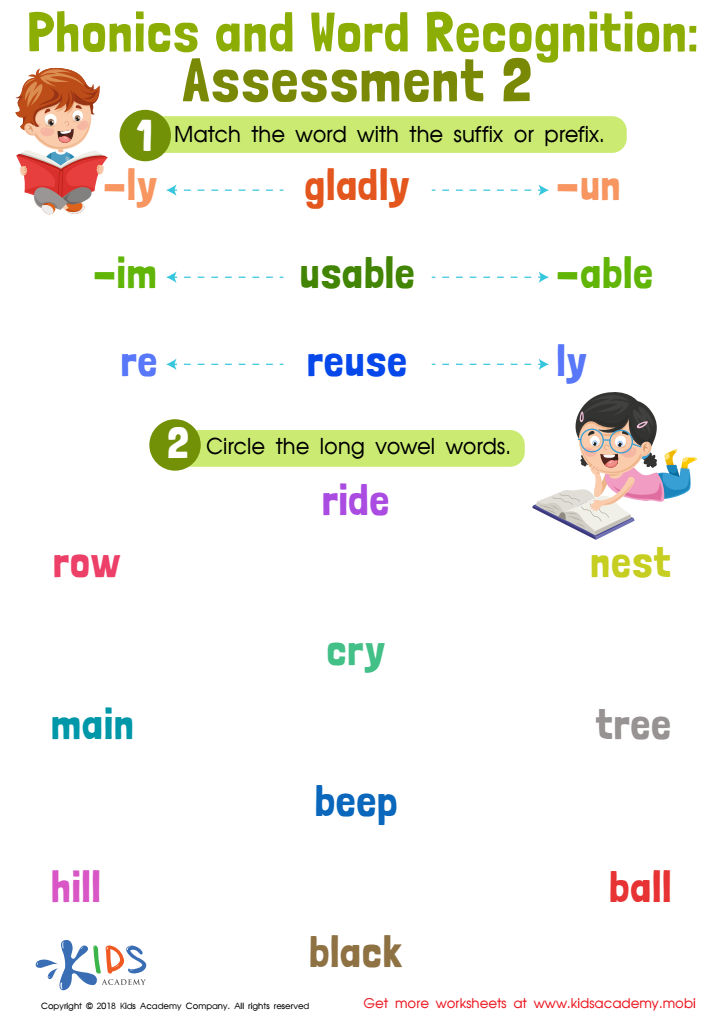Phonics worksheets activities for Ages 8-9
5 filtered results
-
From - To


Phonics and Word Recognition: Assessment 3 Worksheet


Phonics and Word Recognition: Assessment 2 Worksheet


Phonics and Word Recognition: Assessment 1 Worksheet


Phonics and Word Recognition: Assessment 2


Phonics and Word Recognition: Assessment 1 Worksheet
Phonics worksheets activities are an essential tool in the journey of learning to read and write effectively. These structured exercises not only make the process engaging for young learners but also reinforce the foundational skills necessary for literacy. The usefulness of phonics worksheets activities can be attributed to several key factors that directly impact a child's educational development.
Firstly, phonics worksheets activities are designed to introduce and reinforce the relationship between letters and sounds in an interactive manner. This foundational understanding is crucial for decoding words, which is a fundamental skill in reading. By systematically working through these worksheets, children can gradually master the sounds associated with each letter and letter combination, making the process of reading more fluent and less daunting.
Additionally, these activities offer a variety of learning styles to cater to the diverse needs of young learners. Whether it’s through matching exercises, fill-in-the-blanks, or identifying the correct sounds, phonics worksheets provide multiple pathways to understand and internalize the principles of phonics. This variety ensures that children remain engaged and motivated, turning what could be a tedious task into a fun and rewarding experience.
Phonics worksheets activities also allow for individualized pacing. Children can work through the exercises at their own speed, ensuring they fully grasp each concept before moving on. This self-paced approach reduces frustration and builds confidence, both of which are crucial for fostering a love for reading and learning.
Furthermore, these worksheets activities serve as an excellent tool for reinforcement and assessment. Teachers and parents can easily gauge a child's understanding of phonics principles, identify areas of difficulty, and provide targeted support as needed. This continuous feedback loop ensures that learners remain on track and receive the help they require to succeed.
In summary, phonics worksheets activities are invaluable in the literacy development process. Through engaging, varied, and targeted exercises, they lay the groundwork for reading fluency, enhance confidence, and support individual learning needs, making them an indispensable resource in early education.

 Assign to the classroom
Assign to the classroom










